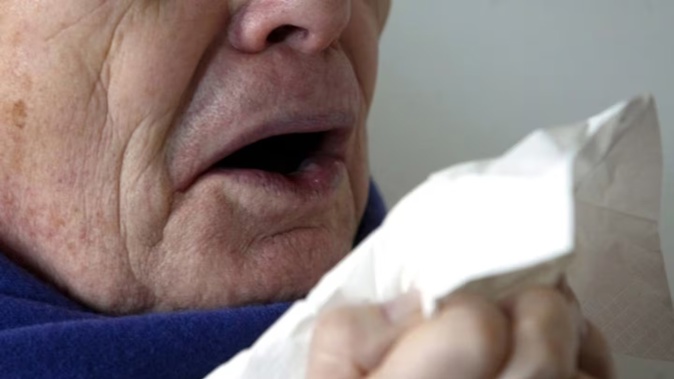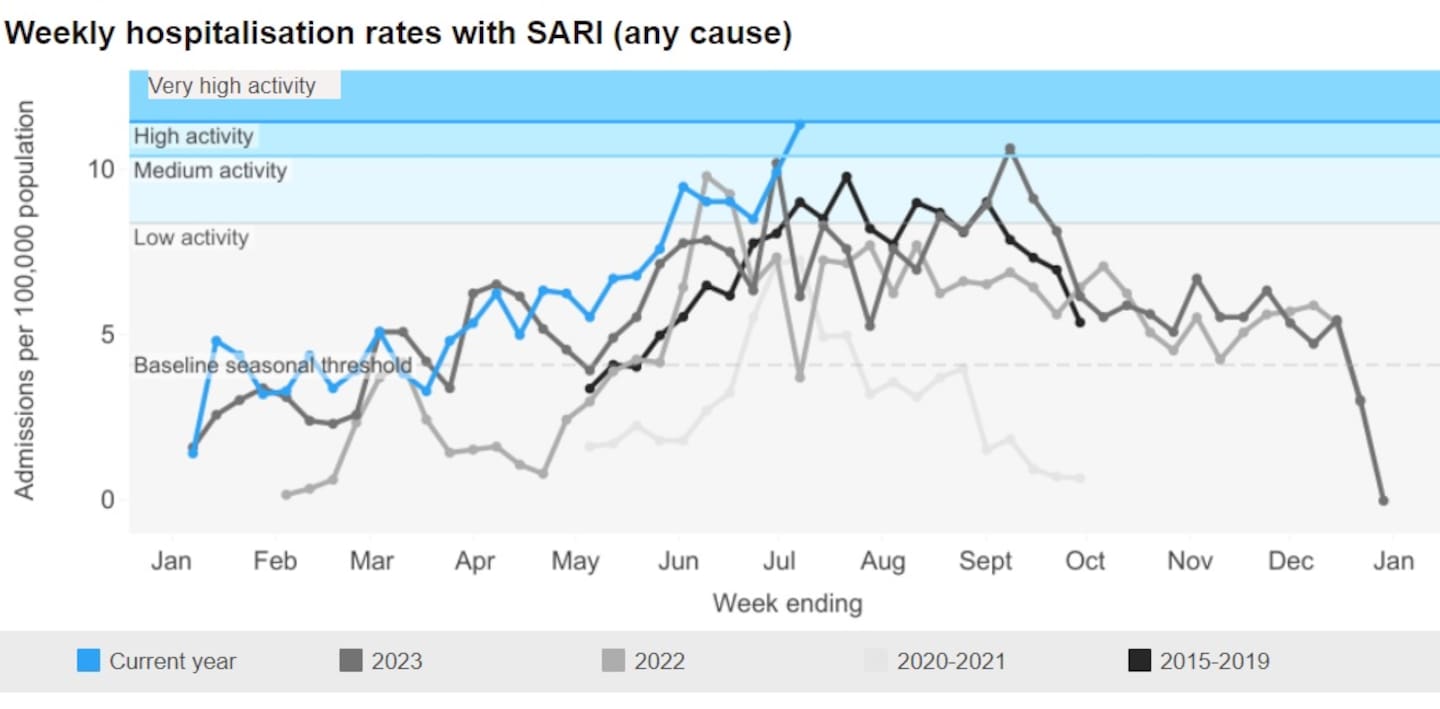
New Zealand’s latest Covid-19 wave has officially peaked - but the worst of a flu season that’s driven a surge in Auckland hospital cases still lies ahead of us, a modeller says.
Professor Michael Plank said the country’s fifth wave looked to have peaked early last month, around the time that weekly hospitalisation numbers climbed to nearly 400.
“The peak number of Covid-19 hospital patients was very similar to the last wave around Christmas, although the latest wave was shorter and sharper than the Christmas one,” said Plank, of Covid-19 Modelling Aotearoa.
Since then, Covid activity appeared to have dropped off “quite rapidly”.
“Reported cases, wastewater levels and hospital admissions are all less than half what they were at the peak nationally, although there will be some regional variations.”
A big driver behind the wave had been fast-spreading Omicron subvariant KP.3, which now represented more than two-thirds of the coronavirus detected in national wastewater sampling.
“The fact that the arrival of KP.3 coincided with the winter months in New Zealand probably helped make the wave sharper than it would otherwise have been,” Plank said.
With this wave subsiding to a new baseline of activity, it was likely to be several months before the country saw another major flare-up - provided a major new variant didn’t arrive first.
“Waves like this one peak and start to come down as people’s immunity levels increase after infection, making it progressively harder for the virus to find susceptible hosts,” Plank said.
“That doesn’t mean everyone got infected in the wave, or anything close to it - many people will have avoided infection in this wave thanks to immunity from prior infection in previous waves.
“And it’s important to recognise that protection against severe illness is much longer lasting than immunity to reinfection.”
Plank added that Covid-19 wasn’t the only respiratory nasty spreading about this winter.
“The Covid-19 wave peaked earlier than seasonal influenza, which is currently at high levels and appears to be still increasing.”

Rates of hospitalisations with severe acute respiratory infections (SARI) at monitored Auckland hospitals have climbed to their highest in years amid a busy flu season. Image / ESR
ESR’s latest monitoring showed flu-related hospitalisations in Auckland had climbed to the highest levels in two years, with influenza A strains dominating.
There’d also been six separate outbreaks involving respiratory viruses - mostly RSV - over the first week of July, with half of them in aged care facilities.
In one Wellington retirement village, an outbreak of Covid-19 infected more than 20 of 190 residents.
Plank said this winter’s trend mirrored that observed in the Northern Hemisphere, where Covid-19 also peaked before flu.
“Hopefully this trend continues because if Covid-19 and influenza peaks occurred at the same time it would significantly increase demand on health systems.”
He encouraged people to ensure they were up to date with their flu and Covid vaccines, and to stay home if sick.
Jamie Morton is a specialist in science and environmental reporting. He joined the Herald in 2011 and writes about everything from conservation and climate change to natural hazards and new technology.
Take your Radio, Podcasts and Music with you









